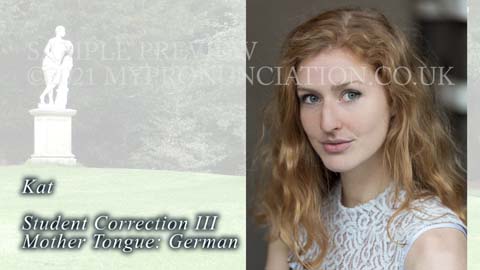Home
What is Received Pronunciation?
- Details
- Written by Anton
- Category: Uncategorised
- Hits: 44738
According to the Cambridge Dictionary, Received Pronunciation is defined as
"the standard way in which middle-class speakers of southern British English pronounce words".
Received Pronunciation (RP) is an accent of Standard British English that was originally associated with the educated social group in southern England. It is also known as the "Queen's English", "Oxford English", or "BBC English". RP is considered a prestige accent and is widely recognized as a standard of English pronunciation in the UK and other countries.
RP is a historically determined accent that emerged in the late 19th and early 20th centuries, and it was based on the speech of public school-educated individuals and the British upper-middle and upper classes. RP is characterized by its clear, precise pronunciation, and its relatively standardized grammar and vocabulary. Despite being associated with a specific social group, RP has become a widely recognized accent that is considered the benchmark for standard English pronunciation in the UK and elsewhere.
Many aspiring British actors learn RP at acting school, and many famous and notable people speak it within the UK. Look at these Pinterest links to get an idea of British people who speak RP in some form or another.
Some would also distinguish between the traditional, upper, neutral, and modern forms of RP. We could say that the RP accent has evolved over the years. For example, perhaps the younger members of the royal family, such as Prince William, could be considered to speak with a more modern RP accent.
There is no "correct way" to speak English, however, Received Pronunciation would be suitable for non-native English speakers who want to speak with an accent that is clear and can be easily understood by others. Those who need to communicate clearly and effectively, such as diplomats, business people, interpreters, and scientists, would benefit from learning RP.
Key characteristics of RP
Received Pronunciation has a certain set of features that distinguish it from other accents of English. Some of these features include:
-
Vowel Sounds: RP has a distinctive set of vowel sounds, including a longer and more open pronunciation of the /ɑː/ sound in words such as "bath" or "dance".
-
Consonant Sounds: RP is known for its clear and precise pronunciation of consonants, particularly the /t/ and /l/ sounds.
-
Intonation: RP is characterized by its distinct rhythm and melody, with a relatively flat intonation and a consistent stress pattern.
Examples of famous people who are known for speaking Received Pronunciation:
-
The Royal Family: Many members of the British Royal Family, including Queen Elizabeth II, have traditionally been associated with RP.
-
Actors: British actors, particularly those trained in classical theatre, are known for speaking RP. Examples include Benedict Cumberbatch, Maggie Smith, and Helen Mirren.
-
Broadcasters: RP has been the accent of choice for many British broadcasters and news presenters such as David Attenborough.
-
Politicians: British politicians, including former Prime Ministers Margaret Thatcher, have been associated with RP.
These are just a few examples, and it's worth noting that while these individuals may have used RP in the past or in specific contexts, they may also use other accents or variations in their daily speech. Additionally, many people who are known for using RP have not necessarily had it as their first accent, but have learned it later in life.
Examples of Received Pronunciation can be found by visiting the link below:
Speakers of RP: British Hollywood Actors
Received Pronunciation Courses & Workshops
- Details
- Written by Anton
- Category: Uncategorised
- Hits: 51618
Learn the accent spoken by British newsreaders, presenters, journalists, and the top British actors in Hollywood.
This website is dedicated to helping you achieve an authentic British RP accent through a variety of resources and services. Whether you're looking for self-study courses, in-person or virtual workshops, or simply helpful tips and tricks, I'm here to help.
Improving your accent can be a challenging and intimidating process. That's why I provide a comprehensive guide to help you navigate the necessary thought process required to achieve your pronunciation goals. I break down the sounds of the English language, helping you identify the areas that need improvement, and providing specific exercises to help you practice.
My monthly pronunciation workshops in London are a great way to get hands-on experience and interact with other learners. These workshops cover a range of topics and are suitable for all levels, from beginner to advanced.
For those who prefer to learn at their own pace, I offer a complete self-study course on Thinkific. This course includes video lessons, audio exercises, and quizzes to test your knowledge and help you track your progress.
I also offer in-person and virtual coaching sessions, so you can receive personalized feedback and guidance from a qualified pronunciation coach.
Whether you're looking to improve your accent for professional reasons or simply to better communicate with native speakers, this site has everything you need to achieve your goals. So why wait? Start your journey to better pronunciation today!
Access a free preview of my course on Thinkific.
https://receivedpronunciation.thinkific.com/pages/free-lesson-offer
.be
---------------------------------------------------
Personalized Coaching: In-person, Zoom, or Google Meet Sessions Available
Contact me at tuition+homepage@ receivedpronunciation.com
Remove the space after the @ sign. This is to avoid spam.
Alternatively, fill out this form to receive a complimentary consultation.
I typically respond within 24 hours, so be sure to check your spam folder if you haven't heard back from me.
Click here to sign up for the latest news, information on workshops and receive discounts.
---------------------------------------------------
Learn natural British English pronunciation. Choose from several courses including: Received Pronunciation: Complete Course or the Student Correction Course. The Complete Course is a comprehensive program that includes over 500 lessons, covering everything from basic articulation to connecting sounds more fluidly. With video tutorials, listening exercises, shadowing exercises, and muscle memory exercises, this course takes an average of 50 hours to complete.
The Student Correction Course focuses on correcting the common mistakes made by non-native English speakers. This course contains approximately seven hours of video content and is designed for those who are already familiar with the basics of English pronunciation. Meet students from different language backgrounds, including Russian, German, Polish, American English, Japanese, and Spanish. Both courses offer review exercises and lesson PDFs. Enrol now and speak with confidence!
The Complete Course is available exclusively on Thinkific.
The Student Correction Course is also available on Udemy. Purchase on the Thinkific platform is recommended (includes extra study materials, quizzes and higher encoding rate, etc).
Think Like a Native
- Details
- Written by Anton
- Category: Learning Tips
- Hits: 15358
Are you struggling with your English pronunciation? My courses use timed repetition, efficient learning techniques and visual aids to help you develop a natural British English accent.
Here are some simple steps you can take to improve your pronunciation.
Step 1: Start with the International Phonetic Alphabet (IPA) to distinguish and identify the different phonemes in the English language. The English alphabet is not a phonetic script, so the IPA is an accurate guide for pronunciation. Learn about the 20 vowel sounds that exist and how to divide them into monophthongs, diphthongs, and long vowel sounds.
Step 2: Tune your ears to identify the subtle differences in English sounds. Comparing similar but different sounds within various situations helps your brain establish and reinforce neural pathways for improved recognition. For instance, practice differentiating between the short vowel /ʌ/ and the schwa sound /ə/.
Step 3: Reinforce your knowledge in the real world by listening to natural spoken English, observing native English speakers' facial movements and breathing, and comparing and adapting your own pronunciation.
Step 4: Immerse yourself in the natural sounds of British English by listening to audiobooks narrated by native speakers. Audible offers a vast library of audiobooks, including books narrated by Stephen Fry for those who wish to tune their ears to the natural sounds of Received Pronunciation.
By following these four steps, you can improve your English pronunciation and develop a more native-like accent.
International phonetic alphabet: https://en.wikipedia.org/wiki/International_Phonetic_Alphabet
https://www.facebook.com/groups/mypronunciaton/
https://www.facebook.com/groups/rpenglish
Online self-study course: https://receivedpronunciation.thinkific.com/collections
Accents in Film & Television: From Downton Abbey to Harry Potter and James Bond
- Details
- Written by Anton
- Category: Learning Tips
- Hits: 28972
The RP accent plays a significant role in popular films and TV series such as Harry Potter, James Bond, Mary Poppins, Notting Hill, Downton Abbey, The Crown, Four Weddings and a Funeral, etc. You will notice that there are variations depending on the characters from the more traditional forms to the more modern forms.
In the television series, The Crown, we can observe a more traditional form of the RP accent. On the other hand, Harry Potter speaks with a more modern form. In James Bond movies, the character speaks with a more neutral RP accent, which reflects the suave and sophisticated nature of the character. The RP accent goes beyond just pronunciation. There are other aspects such as pitch, intonation and rhythm.
Similarly, in the popular British television series Downton Abbey, accents play a significant role in conveying the social and class dynamics of the time. The show features a range of accents, from the upper-class Received Pronunciation (RP) of the wealthy Crawley family to the regional dialects of their servants and staff. The use of these different accents helps to highlight the divide between the upstairs and downstairs characters, as well as the cultural and social differences between them. Additionally, the RP accent of the Crawley family serves as a symbol of their status and cultural capital, while the regional dialects of the servants and staff reflect their working-class backgrounds and roots.
Observing the use of the RP accent in film and media can give us a better understanding of the variations and the subtle nuances of the accent.
Page 1 of 3



